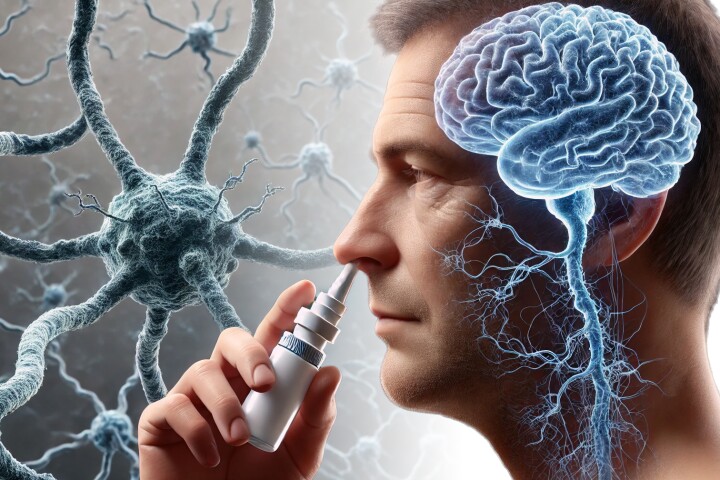Scientists at the University of Wisconsin-Madison have created a device known as a PoNS, that shows promise for the treatment of traumatic brain injuries, strokes, or the effects of diseases such as Parkinson’s and multiple sclerosis. Researchers at the U.S. Army Medical Research and Materiel Command are now conducting a study on the device, which works by stimulating the patient’s tongue.
The battery-operated PoNS consists of a control/power box, and a flat electrode-covered oral portion that the patient holds in their mouth, against their tongue. In a typical 20 to 30-minute PoNS session, the patient performs a set of physical, occupational, and cognitive exercises, tailored toward their disability.
Each of those exercises are paired with specific patterns of electrodes being activated on the PoNS, which in turn stimulate individual nerve endings on the tongue – the stimulation process is referred to as cranial nerve non-invasive neuromodulation, or CN-NiNM.
By learning to associate specific nerve impulses from the tongue with specific activities, the brain reportedly starts to form new neural pathways for functions such as balance. Over time, this is said to increase its organizational ability, potentially allowing the patient to regain control of mental or physical functions.
In a study conducted at the University of Nebraska, a group of test subjects with multiple sclerosis received regular treatment with the PoNS device. After eight weeks of therapy, they showed a “50 percent improvement in postural balance, a 55 percent improvement in walking ability, a 48 percent reduction in MS impact scores and a 30 percent reduction in fatigue.”
In the latest study, the Army has joined forces with the University of Wisconsin-Madison and NeuroHabilitation Corporation, which is commercializing the technology. The year-long evaluation of PoNS will begin this month, and will focus largely on the treatment of brain-injured soldiers. It is hoped that the research will lead to U.S. Food and Drug Administration clearance for the device.
Source: U.S. Army, University of Nebraska (pdf) via PopSci




